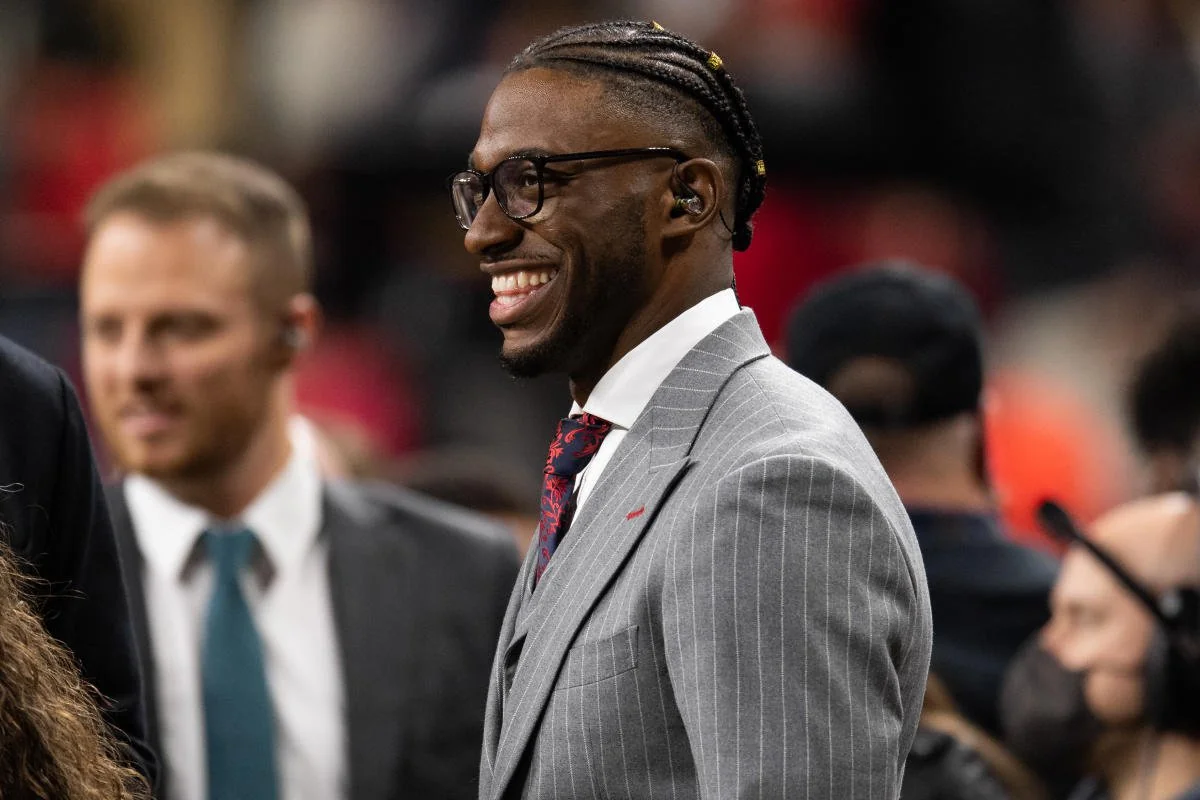Courtesy of Bowie State University
Former Washington Commanders and Baltimore Ravens quarterback Robert Griffin III visited with Bowie State University sport management students on Nov. 16 to share career insights that could help the future leaders as they prepare for the workforce.
Griffin played seven seasons in the NFL, earning Offensive Rookie of the Year and Pro Bowl honors in 2012 before getting his start at ESPN as a football commentator/analyst in 2021.
Griffin fielded all manner of questions from the students during an hour-long Zoom call and covered a range of topics from tips to improve their event times in track and field to transitioning from the football field to the commentator’s table at ESPN. Though two very different jobs, Griffin talked about how his approach for both positions was consistent. His main ingredient for success always involved conducting as much research and preparation as possible.
“I spend the entire day Wednesday studying for my Saturday game,” said Griffin, as he detailed what he does to prepare for covering a college football game. “I’ve got two new teams I have to know. I got to know how their season’s been going, the key players and the scheme they run so I can articulate that the right way to the viewer.”
Griffin also shared the personal motivation that drove him to finally hop on the commentator’s table after his initial resistance. In his time around the game, Griffin felt that there were times when broadcasters and commentators were overly critical or unfair in their coverage of various teams and athletes. He wanted to counter that trend and work to provide a more holistic view of athletes that would allow viewers to come to their own conclusions instead of being force fed incomplete narratives.
“I got into TV because my own story wasn’t told the right way,” said Griffin. “I took it as a personal mission to try to tell guys’ stories the right way, celebrate the game and have fun with it. The industry is filled with a lot of people that like to tear people down and make it more about them than it is about the people that they’re covering.”
One example of unfair coverage Griffin talked with the class about was the instance early in his career when certain media members started questioning his Blackness and labelled him a “cornball brother”. While initially hurt by the label, Griffin came to use that period in his career to embrace his identity instead of trying to fit himself in a box someone else had in mind for him.
“Being Black is not something that’s equated to how you wear your pants, what food you eat or how you wear your hair,” he said. “That is part of being who you are. You don’t have to talk or walk a certain way or date a certain person. That’s how I’ve always felt about it.”
At the end of his visit, Griffin encouraged the students to remember who they are as a person and to never lose sight of that during their professional career. He said their authenticity would end up serving the students better in the long run.
“Be yourself,” said Griffin. “You don’t have to be me, John Madden, or Kirk Herbstreit. Be yourself because that’s going to be the easiest thing for you to replicate time and time again. I don’t play a character, and I would encourage you guys to do the same and be yourself.”

